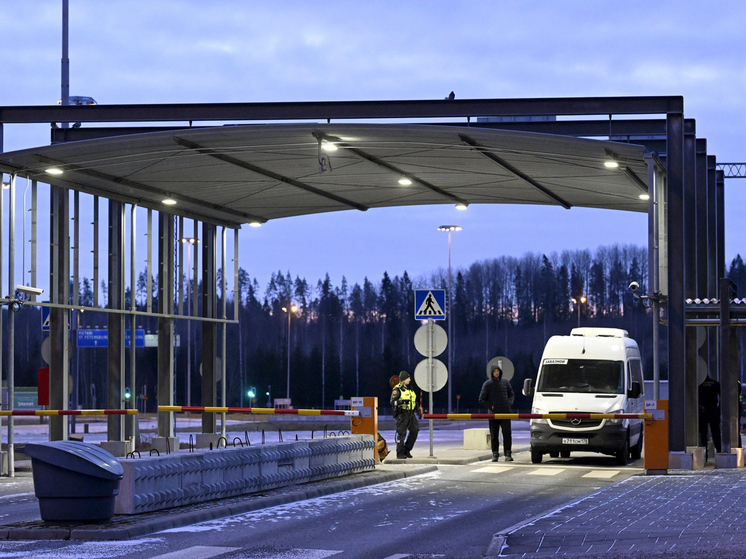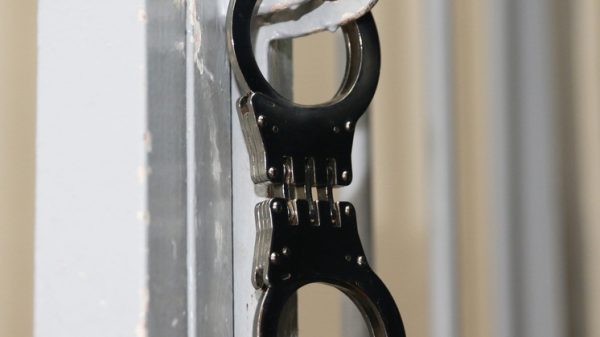Which European neighbors are “good” for us now and why
Russia’s land border with the European Union is being closed on the other side with a huge barn lock. So it seems like it was already locked up last year? That's right, they closed. And now they close it again, leaving now a very narrow crack. We look forward to 2024 with interest. Apparently, in the coming year the skiff will come to this crack too.
And then in the center of Europe there will be an analogue of the demarcation line between the north and south of Korea. There is a border, but crossing it is impossible even in theory. People feel bad, but our smaller brothers, on the contrary, feel very good. The 250 km long buffer zone between the two Koreas is full of representatives of even the rarest species of animals. The length of the land border of the Russian Federation with Finland alone is over a thousand kilometers. Here the animals will live!

Yes, yes, I am aware that this analogy is not only too gloomy, but also very inaccurate. Turn Russia into an analogue of North Korea — to a state isolated from all near and distant neighbors — the West did not succeed. Russia itself also refused to isolate itself. As a result, the “Iron Curtain” between the Russian Federation and the European Union remains very conditional.
Suffice it to remember the well-known proverb: “The smart one won’t go up the mountain, the smart one will go around the mountain,” and if you want to visit the EU, you have a specific algorithm of actions in your hands .
Have the Finns fallen out of love? But the French still love it. Are the Balts no longer welcome? But the Italians still favor it. Remember the old Soviet advertising slogans about the desirability of using air transport, and go ahead — transit countries (and especially their airlines, which are currently raking in money with a shovel) are waiting for you!
But this, so to speak, is the tourist side of the issue. But the other side of him — political. Everyone who lives in an apartment building knows: “good” ones. neighbors live on the same floor as you (you can run to them to borrow salt), and the “bad” ones neighbors – either above you or below you (they flood you, you flood them).
But in the “apartment building” called Europe (geographically, Russia will still remain part of this “common home”), now everything is somewhat different. «Good» Russia's neighbors in the EU are located as far away from it as possible. But the “bad” ones they live nearby, right next to us.
Accident? No matter how it is! In 2010, I came to visit a friend in Lithuania, whom I had known for ten years. And suddenly, out of nowhere, this friend asks me — in the most friendly tone, with sincere curiosity: “Why are you Russians such imperialists?”
Let me remind you that at the height of Medvedev’s presidency (the one that is now hiding the West, censoring your vocabulary) in our official relations with the USA and the EU there was peace and quiet and God's grace. But fear still lived in the recesses of the organisms of some of our close European neighbors.
After February 2022, this fear burst to the surface and turned in Vilnius, Riga, Tallinn, Helsinki and further down the list into the main driver of their policy in the Russian direction. And no statements from Moscow on the topic that Ukraine and NATO — This is a very special case, this situation, I am afraid, will not change in the near future. And not in the near future either.
There is always a strong instinctive, irrational component in fear. The irrational is conquered with great difficulty and very slowly. Modern Russia can only accept this as a given: its land borders with the EU for many years have turned from a zone of cooperation into a zone of exclusion.
We will now have to cooperate through Russia’s very distant neighbors, who are not afraid of our country.
We will now have to cooperate through Russia’s very distant neighbors, who are not afraid of our country.
We will now have to cooperate through Russia’s very distant neighbors, who are not afraid of our country.
Of course, under Emperor Alexander I, Russian troops reached Paris. But, firstly, the French were the first to start, and, secondly, it was so long ago that it is now perceived as a sweet archaism. Of course, the theory about the increasing degree of friendly attitude towards Russia in Europe as one moves away from its borders does not always work and does not work everywhere.
Let's take the UK for example. Russia has never encroached on its shores (in 1904, however, there was an episode when a squadron sailing to war with Japan under the command of Vice Admiral Zinovy Rozhdestvensky accidentally fired at a group of British fishing boats near the English city of Kingston upon Hull. But this episode was the first and only). However, for the British political elite, a sharply negative attitude towards Russia – it's something like a religion.
But here, too, it's about fear. The British were afraid for so long that Russia would take away their most valuable colony, India, from them, that India had long ceased to be a colony, and this fear itself was forgotten, but a residue from it remained — and doesn’t think of disappearing anywhere.
However, we digress from the topic. And this theme is that you can forget about past trips from St. Petersburg to Helsinki for the weekend — either for a long time, or even forever. The main thing now is that the Baltic Sea region does not turn into another zone of military conflict.
And there are certain prerequisites for this. Then in the country of Estonia, eccentrics from among the local ministers stutter about the possibility of blocking the sea for Russian ships. Then in the country of Denmark — the same one that during the Second World War, to the accompaniment of the statement of a high-ranking local general, “No one in the army violated his duty towards king and country.” capitulated just a few hours after the start of hostilities, — are thinking about “inspection” on the sea of Russian ships.
Let our close European neighbors direct their energetic energy to closing the last remaining land border crossings. This is undoubtedly bad too. But Russia’s relations with the neighboring part of the EU are now such that the choice is not between good and bad, but between bad, very bad and disgusting.


























































Свежие комментарии